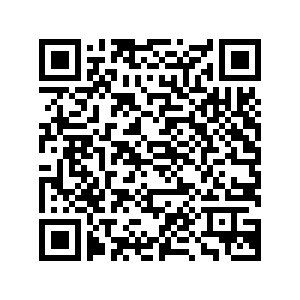SHANGHAI, March 29 (Xinhua) -- Braving the heavy rain, Pakistani businessman Habib Ur Rehman, 33, left home early in the morning to assist Shanghai's anti-epidemic efforts as a volunteer.
The megacity, with a permanent population of more than 24 million and around 200,000 expats, is conducting rounds of nucleic acid testing to tackle a recent resurgence of COVID-19 infections.
Donning full protective gear and a face shield, Rehman rendered his service in the Ronghua residential neighborhood in the city's Changning District, where residents had queued up to undergo testing.
He is tasked with guiding people to registration and testing sites in an orderly manner, and during his shift, he serves over 100 expats from more than a dozen countries and regions.
"My family and I have lived in Shanghai for a long time and witnessed China's efficiency and success in fighting the epidemic in Wuhan in 2020, which has given us a lot of confidence. Regarding the epidemic prevention, we have some experiences to share," Rehman said.
Starting this month, several regions in China have seen a surge in newly confirmed cases and asymptomatic carriers. Meanwhile, frequent spells of rain and temperature fluctuations have posed challenges to Shanghai's nucleic acid screening efforts.
Rehman regards himself as a Shanghai native. He was encouraged by his father to pursue studies in Shanghai and in 2008, he took up undergraduate study majoring in international economics and trade at Shanghai University of Finance and Economics.
After graduation, he joined his family business, trading Pakistani handmade carpets and other specialty goods with China.
Expats who are new in Shanghai might be a little nervous during nucleic acid screening, Rehman said, adding that as a multilingual volunteer, he believes he can help such individuals with suggestions and other assistance.
"As volunteers, we not only help maintain order in the queue but also solve other problems in a timely manner," he said.
"Problems with health QR codes? No worries. Let me help you fix it," he said while volunteering.
Prior to taking up the volunteering work, Rehman and his family had completed two rounds of nucleic acid testing.
"Although standing in the queue is time-consuming and requires patience, the entire process was very smooth. If the weather was pleasant, people would have been in a better mood while queuing, and I would have spent more time speaking with them about my personal experience," he said.
Rehman is enthusiastic about volunteering work. In 2016, he was in one of the first batches of expats to volunteer with Shanghai's public security department, assisting the police in managing traffic congestion and providing language translation services in the multilingual community.
He believes that with the assistance of volunteers such as himself, expats can adapt much more easily to a new living environment.
Rehman acknowledged that his family business has suffered short-term setbacks amid the pandemic, but they are optimistic. "The business has certainly taken some hits, but I think safety comes first. Without health, nothing else is meaningful."
In 2021, Rehman and his family introduced Pakistani salt lamps into the Chinese market, which became popular at the fourth China International Import Expo (CIIE). He plans to participate in the fifth CIIE this year. ■
